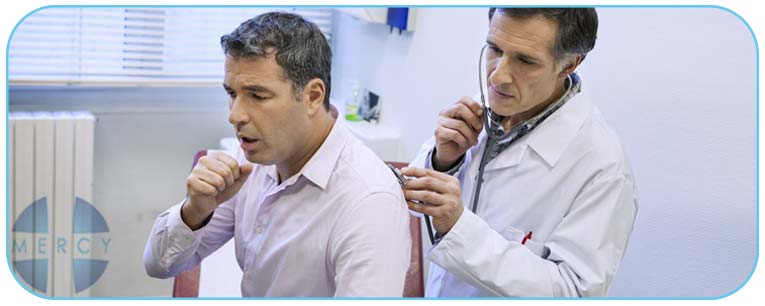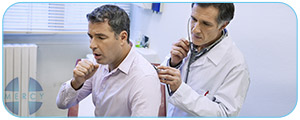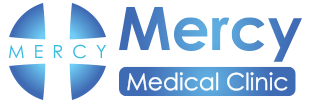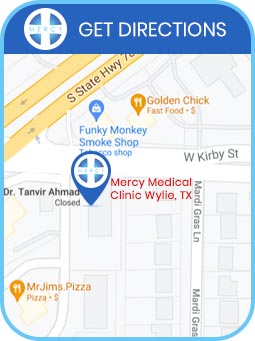COPD Treatment Doctor Q&A
Chronic obstructive pulmonary disease (COPD) can be a devastating illness, especially when it is left untreated. However, with the right treatment, it can be effectively managed without reducing your quality of life. At Mercy Medical Clinic, our board-certified physicians have extensive experience and skill in treating COPD, and they would be happy to help you find relief from your symptoms! Contact us for more information or schedule an appointment online. We are conveniently located at 615 S Highway 78, Suite 100, Wylie, TX 75098!


Table of Contents:
What is the main cause of COPD?
What are the early warning signs of COPD?
What are the 4 stages of COPD?
Can a person with COPD get better?
According to the National Institutes of Health (NIH), cigarette smoking is the number one cause of chronic obstructive pulmonary disease. The NIH estimates that 75 percent of individuals diagnosed with COPD currently smoke cigarettes or smoked them in the past. If second-hand smoke is included within that equation, the American Lung Association (ALA) estimates that 85 to 90 percent of COPD cases are caused by cigarette smoking.
That said, any exposure to a lung irritant over an extended period can cause COPD. As such, COPD can also be caused by long-term exposure to air pollution, chemical fumes, and dust in the workplace or environment. In rare cases, COPD has also been caused by alpha-1 deficiency-related emphysema, which is a genetic disorder that involves a deficiency of the alpha-1 proteins that protect your lungs.
For many, the early stages of chronic obstructive pulmonary disease do not produce any symptoms, as COPD often creeps up on those it affects. For others, on the other hand, early warning signs of COPD could include a persistent, lingering cough or periodic bouts of difficulty breathing, especially after vigorous activity. It is essential to see a doctor as soon as you notice any COPD symptoms or if you are concerned that you might have COPD to minimize and prevent the damage that COPD can inflict on your lungs.
The four stages of chronic obstructive pulmonary disease range from mild to moderate and severe to very severe.
As mentioned, stage I of COPD can come without any symptoms, or it can involve a persistent cough and shortness of breath upon exertion.
In stage II of COPD, you will likely experience a persistent cough, shortness of breath with or without strenuous exercise, wheezing when engaging in vigorous activity, fatigue, and difficulty sleeping.
When COPD progresses to stage III, quality of life is significantly reduced, as you may experience such symptoms as frequent respiratory infections, swelling in your ankles, feet, and legs, chest tightness, wheezing and shortness of breath during routine tasks, and difficulty in taking a deep breath.
In stage IV of COPD, which is the final stage, patients could experience a barrel-shaped chest, delirium, constant wheezing and shortness of breath, appetite and weight loss, rapid heart rate, as well as increased blood pressure. Stage IV of COPD is typically after the illness has inflicted years of damage to the lungs, and flare-ups can sometimes be fatal.
While there is currently no cure for chronic obstructive pulmonary disease and no possibility of reversing the condition entirely, COPD can be successfully managed with expert treatment and specific lifestyle changes. Treatment options for COPD include bronchodilators, which relax the muscles surrounding your airways, inhaled corticosteroids, pulmonary rehabilitation, oxygen therapy, breathing exercises, antibiotics, and more. Lifestyle changes can include quitting smoking, avoiding irritants, adopting a doctor-recommended exercise routine, and making changes to your diet.
When you have COPD, it is best to avoid foods that contain trans fats, saturated fats, and simple carbohydrates, including sugar and processed foods. Instead, you should fill your diet with mono- and poly-unsaturated fats, complex carbohydrates, healthy sources of protein, and foods that are high in fiber. You should limit sodium intake and drink plenty of fluids to stay hydrated.
For expert chronic obstructive pulmonary disease treatment, we welcome you to come to Mercy Medical Clinic! Book an appointment online or call us during the hours of 8:30 AM to 5:00 PM from Monday to Friday. Mercy Medical Clinic is located at 615 S Highway 78, Suite 100, in Wylie, Texas. We serve patients from Wylie TX, Lavon TX, Rockwall TX, Sachse TX, Allen TX, Winningkoff TX and BEYOND.

Additional Services You May Need







